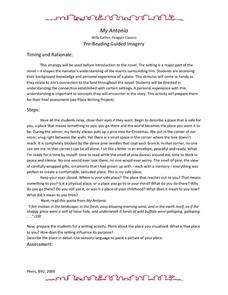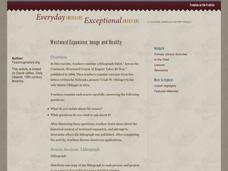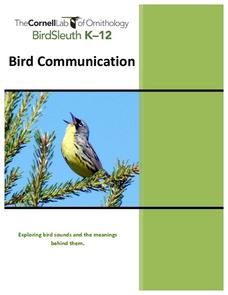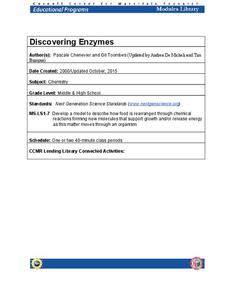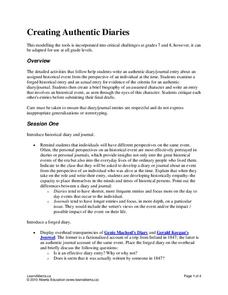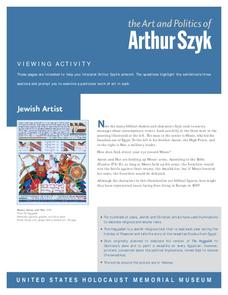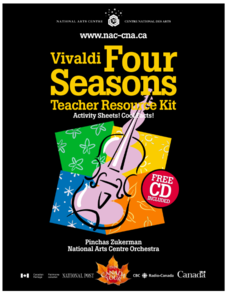Curated OER
My Antonia: Prereading Guided Imagery
What makes a place safe? What makes a setting effective? Explore the safe spaces and descriptive language with a prereading activity for Willa Cather's My Antonia. The teacher describes his or her own safe space and then prompts pupils...
Roy Rosenzweig Center for History and New Media
Westward Expansion: Image and Reality
As your young historians study Westward Expansion, practice in-depth primary source analysis with the documents and guidelines presented in this resource. They will examine a lithograph and excerpts from two letters written by a Nebraska...
Reading Worksheets
Inferences Worksheet 9
Help your pupils take charge of their inferring abilities with an exercise designed for direct practice with making and supporting inferences. Learners read four short passages and answer two to three questions for each passage that...
Ohio National Guard
Emotional Intelligence
Guide young learners through the tumultuous emotions of growing up with a set of worksheets about self-esteem and empathy. Each worksheet focuses on a different skill, allowing youngsters to work through their feelings and relate to...
Contemporary Arts Center
Mughal Miniature Paintings: Pattern Transformations
What is the artist's role in the post 9/11 world? How do artists use imagery to convey meaning in their work? After examining the work of Mughal artist Imran Qureshi, class members create their own work that uses combative imagery to...
Macmillan Education
Social Skills
Every culture has a set of social skills one must learn to establish and maintain relationships. Some of these skills are particular to a culture and some are universal. Class members practice using appropriate language,...
Exploratorium
Pixels, Pictures, and Phones
Take a real close look at your phone screen. What do you see? Here's an activity that provides guidance on how to look at a smart phone screen in order to see the pixels and to see how the phone creates colors and motion on the...
NOAA
Make Your Own Volcano!
Make a volcano erupt in your own classroom! Young scientists use household and craft materials to model and simulate the eruption of a volcano.
American Chemical Society
Exploring Energy
When asked to list everyday objects that require energy, most people list technology that use batteries or electricity. Through hands-on exploration, young scientists discover energy is much more than just circuitry. They play with...
American Chemical Society
Energy and Entropy of a Stretched Rubber Band
Stephen Perry invented and patented the modern rubber band in 1845. Young scientists put his discovery to work as they use rubber bands to observe entropy and enthalpy. They determine the change in free energy to figure out if it...
Cornell Lab of Ornithology
Bird Communication
Sing for your dinner! Investigate the purpose of bird songs and strategies birds use to communicate. Through the lessons, individuals learn how to recognize different types of bird communication as well as hypothesize the purpose of...
Cornell University
Discovering Enzymes
Explore the function of enzymes through a series of lab investigations. Learners use household enzymes such as hydrogen peroxide to model the role of enzymes. The enzymes break down proteins with and without a catalyst.
Prestwick House
Of Mice and Men
What is Lennie Small's dream job? What's the future George imagines? Readers of Of Mice and Men must identify character and events from John Steinbeck's novella about the friendship of two California migrant workers.
Royal Society of Chemistry
Some Reactions of Carbon Dioxide—Microscale Chemistry
Precipitation reactions are always interesting. How about one that forms a precipitate using a gas? Chemists of any age will enjoy this twist on a standard solubility lab. Partners observe the lack of interaction between sodium...
Nuffield Foundation
Observing Osmosis, Plasmolysis, and Turgor in Plant Cells
Create the perfect conditions for osmosis. Young scholars use a microscope to observe plant cells exposed to distilled water or sodium chloride. They observe how osmosis creates turgid or plasmolyzed cells.
Alberta Learning
Creating Authentic Diaries
Napoleon Bonaparte once said, "What is history but a fable agreed upon?" A series of lessons encourages learners to look beyond the basic fable agreed upon related to events in history and consider multiple accounts of the event....
Cornell University
Atomic Bonding
Explore the connection of surface area to bonding within atoms. Learners complete lab investigations to model changing surface area with different sizes and concentrations of atoms. A flour fireball demonstration follows the labs to...
US Holocaust Museum
The Art and Politics of Arthur Szyk
Have you ever listened to a song that had a deeper political meaning to it? Every examined a work of art with layers of meaning? Pupils analyze the drawings of Arthur Szyk. They research the deeper meaning of several artistic cartoons...
Canada's National Arts Center
Vivaldi and The Four Seasons: Teacher Resource Kit
Did you know that Vivaldi wrote "Winter," the final concerto of his The Four Seasons, in the key of F minor to echo the sleigh ride pieces popular at the time? A teacher resource kit, designed to support a study of the work, is packed...
Curated OER
Studying Idioms and Word Meaning
Idioms are really confusing, but learning them will help your readers deepen their understanding of a variety of texts. This 11-slide presentation offers several examples (like "break a leg" and "mind your manners") to help readers use...
Curated OER
The Houdini Box: Compare and Contrast
How did Houdini do it? After reading a short passage about magicians and their tricks, readers are asked to compare and contrast some of the illusions these prestidigitators create.
Curated OER
Riddles
What does it mean? Learners read four riddles, connecting them to the pictures they are describing. Consider challenging them to cover up the pictures before attempting the riddles, as this will greatly increase the difficulty. Next,...
Curated OER
It can be a hazard!
Every child should know about the dangers of hazardous household materials. They draw a line between the types of material and the best precaution to stay safe when using that material. They can complete a secondary activity which has...
Curated OER
Iggy the Penguin
Take your young word detectives on a hunt for the /i/ sound. Use the tongue twister about Iggy the penguin to help learners identify the target sound. Then learners are given several words, and they have to use their detective skills to...


